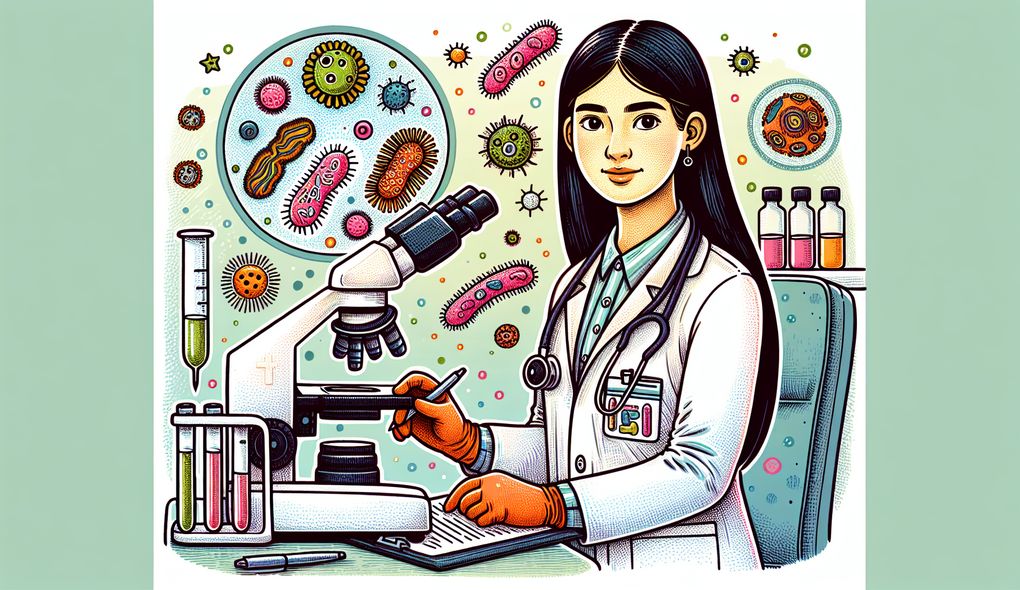Tell us about a time when you had to work collaboratively with other healthcare professionals to provide comprehensive patient care.
SENIOR LEVEL

Sample answer to the question:
One time, I had to work collaboratively with other healthcare professionals to provide comprehensive patient care was when I was part of a multidisciplinary team at a hospital. We had a patient who was diagnosed with a complicated case of pneumonia. As the Infectious Disease Physician, I worked closely with the pulmonologist, respiratory therapist, and the nursing staff to develop a treatment plan. We held daily meetings to discuss the patient's progress and adjust the treatment as needed. I communicated regularly with the patient's primary care physician to ensure continuity of care. Together, we monitored the patient's vital signs, conducted regular tests, and adjusted medications. This collaborative approach resulted in the patient successfully recovering from pneumonia and being discharged from the hospital.
Here is a more solid answer:
One notable example of when I collaborated with other healthcare professionals to provide comprehensive patient care was during my residency training. I was assigned to work in the infectious disease department of a busy hospital. As part of a multidisciplinary team, I collaborated with the attending physician, nurses, and pharmacists to provide optimal care for patients with various infectious diseases. One specific case that stands out is when we had a patient with a severe case of sepsis. I utilized my expertise in infectious diseases to guide the team in selecting the appropriate antibiotic regimen and monitoring the patient's response to treatment. I also worked closely with the nursing staff to ensure proper infection control procedures were followed. Effective communication was crucial in coordinating the patient's care, and I regularly provided updates to the attending physician and communicated with the patient's family. Through our collaborative efforts, we were able to stabilize the patient's condition and facilitate their recovery.
Why is this a more solid answer?
The solid answer expands on the basic answer by providing a more comprehensive and detailed example of the candidate's collaboration with other healthcare professionals. It specifically highlights the candidate's expertise in infectious diseases and their treatments, their ability to work in a multidisciplinary team, and their excellent interpersonal and communication skills. However, the answer can be further improved by incorporating specific examples of the candidate's leadership abilities, research and analytical skills, and commitment to continuous learning and professional development.
An example of a exceptional answer:
During my fellowship in infectious diseases, I had the opportunity to work on a research project that required collaboration with healthcare professionals from various disciplines. The project aimed to develop an evidence-based protocol for the management of healthcare-associated infections in a hospital setting. As the lead researcher, I formed a research team consisting of physicians, nurses, infection control practitioners, and epidemiologists. We conducted a comprehensive literature review, analyzed data from previous cases, and designed a protocol that incorporated best practices. Throughout the project, I demonstrated my leadership abilities by coordinating meetings, delegating tasks, and ensuring the project stayed on track. I also facilitated regular communication among team members through weekly progress updates and collaborative discussions. The research findings were subsequently published in a peer-reviewed journal, contributing to the advancement of infectious disease management in healthcare settings.
Why is this an exceptional answer?
The exceptional answer showcases an example that goes beyond the basic and solid answers. It demonstrates the candidate's leadership abilities, research and analytical skills, and commitment to continuous learning and professional development. The candidate took on a lead role in a research project that required collaboration with healthcare professionals from various disciplines, showcasing their ability to work in a multidisciplinary team. The project also aligns with the responsibilities outlined in the job description, specifically the ability to develop protocols and guidelines for the diagnosis, treatment, and management of infectious diseases. The exceptional answer emphasizes the candidate's significant contribution and impact in advancing the field of infectious disease management.
How to prepare for this question:
- Reflect on past experiences where you collaborated with other healthcare professionals to provide comprehensive patient care. Think about specific examples where you utilized your expertise in infectious diseases, worked effectively in a multidisciplinary team, and demonstrated excellent interpersonal and communication skills.
- Review the responsibilities outlined in the job description and identify areas where you can provide concrete examples of how you have fulfilled similar responsibilities in the past.
- Stay updated with the latest developments in infectious disease treatment, research studies, and infection control practices. This will demonstrate your commitment to continuous learning and professional development.
- Practice articulating your experiences and achievements in a concise and compelling manner. Be prepared to provide specific details and examples during the interview.
What are interviewers evaluating with this question?
- Expertise in infectious diseases and their treatments
- Ability to work in a multidisciplinary team
- Excellent interpersonal and communication skills

